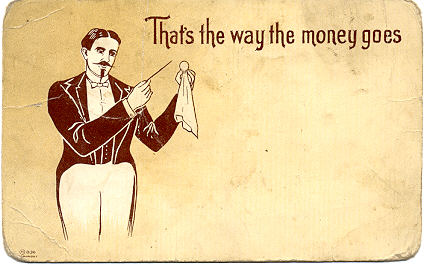Posted on behalf of Mrs Mollington by Barry
I have not been well lately so Barry, Daisy’s lovely friend, is kindly typing this as I dictate my latest ‘Thoughts’. He is an excellent touch-typist despite having builder’s hands.
He’s smiling – he’s a retired English teacher. But I don’t think he’ll mind if I proof-read it before he emails Charles. I hope we meet the deadline.
Yes Barry, type everything I say and if there’s time I’ll edit it later. If you’re not sure, put it in brackets.
(Deep breath…)
Everyone thought I had made a full recovery from that virus and, when Daisy visited me a few days ago, she said how well I was looking. It was then that I knew something was wrong. I could see the concern in her kind eyes. I chose to ignore it, as she chose to ignore the way I struggled to take a sip of tea.
Dehydration. Nature’s way of telling us we’re ready.
The following day, I could barely lift my head from the pillow. My children, Jamie and Alex, were next to my bed, sitting on the high-backed chairs from the dining room.
Jamie was talking quietly. It was a while before I realised that she was reading from a book. Kazuo Ishiguro’s sublime The Remains of the Day. We had discussed it endlessly and we’d watched the film together. Poor selfless Mr Stevens. As I listened to my daughter reading, I decided that Anthony Hopkins would never have found happiness with Emma Thompson. Then I pondered, ‘Why on earth is Jamie reading this to me when I am quite obviously dying? Could she not find my Pam Ayres?’
(No Barry, I don’t think Mr Stevens wasted his life. Well, not completely anyway.)
My son Alex has an important job in the city. So the fact that he was here in my bedroom in the middle of the morning meant that it must be serious. That and those dining-room chairs. He was talking softly into his phone – someone from work. Lots of technical jargon and the occasional swear word. Sounded like one of those characters from the mockumentary ‘2012’. Things have changed since I worked in an office.
(Yes, I’m positive mockumentary is a word Barry. Ignore the squiggly red line. On second thoughts, right click it and add it to the dictionary.)
We’re told that as we die, our lives flash before us. My mind was a blank, apart from one vivid memory from more than sixty six years ago. I was eight years old and really poorly with the measles. Mum decided to fetch the doctor. When I realised that she was about to leave, I called out in my delirium, ‘Don’t slam the door!’ As my bedroom door was quietly closed, I cried, ‘Noo! You slammed the door…’
(Yes, Barry. I’ll let you spell ‘no’ with an extra ‘o’.)
Since that day, I have never liked being in a room with the door completely closed. Over the years, my little foible has been the source of many comical incidents.
(No Barry, I’m not going to elaborate.)
As Alex put his phone on my bedside table, I couldn’t help worrying about my last words. One could say something noble, only to live a bit longer and end up saying something like, ‘There’s a cobweb up there.’ I have occasionally day-dreamed about this sort of thing in an idle moment. We’ve even talked about it around the dining room table. Mr M wants to say the words from Spike Milligan’s tombstone, ‘I told you I was ill.’ But I favour, ‘There’s something incredibly important I’ve been meaning to tell you…’ Followed by a slight choking sound and then silence.
(Why do I call him Mr M? Have you never seen an episode of Columbo, Barry? The spouse always remains a mystery.)
Back to my dying moments. As I was wondering whether I had the energy to say any final words at all, I heard a pitiful yelp coming from the landing. So I mumbled, ‘Mr Chunky wants to see me.’
As I took my final breath, Jamie whispered, ‘Is she?’ But before Alex could reply, I breathed again and they both jumped, stifling short cries.
When Daisy stepped out of the wardrobe, I should have realised that my grip on reality had well and truly slipped. She was frantically flicking through the pages of the Natural Death Handbook, shouting, ‘Where’s the cremfilm? We can’t have any leakage! She promised me there’d be no leakage!’
(Yes Barry, cremfilm is also a word. And, no it’s nothing to do with keeping sandwiches fresh.)
Then Daisy calmly asked me if it was all right if she measured me for my coffin, adding, ‘Should it be in inches or centimetres?’
(No Barry, I didn’t see a bright light at the end of the tunnel: just Daisy with a look of determination and a wooden ruler.)
I must have fallen into a deep and dreamless sleep after that. When I finally awoke, Daisy explained that they had taken it in turns to sit with me and Mr M had kept vigil through the night, holding my hand for hours. It seems I was delirious at one point. Everyone was extremely worried especially when I cried out, ‘Remember, I want a burial cloud AND Highland Cathedral!’
(No Barry, it’s not that strange. A burial cloud is a type of coffin. Yes, it should have a capital B and C. And yes, I would like a real piper to play Highland Cathedral. In a kilt.)
Postscript from Barry: Lyra is making a steady recovery and is staying with her sister Myra (I think that’s what she told me to say although I’m sure Daisy told me her name is Mary).

